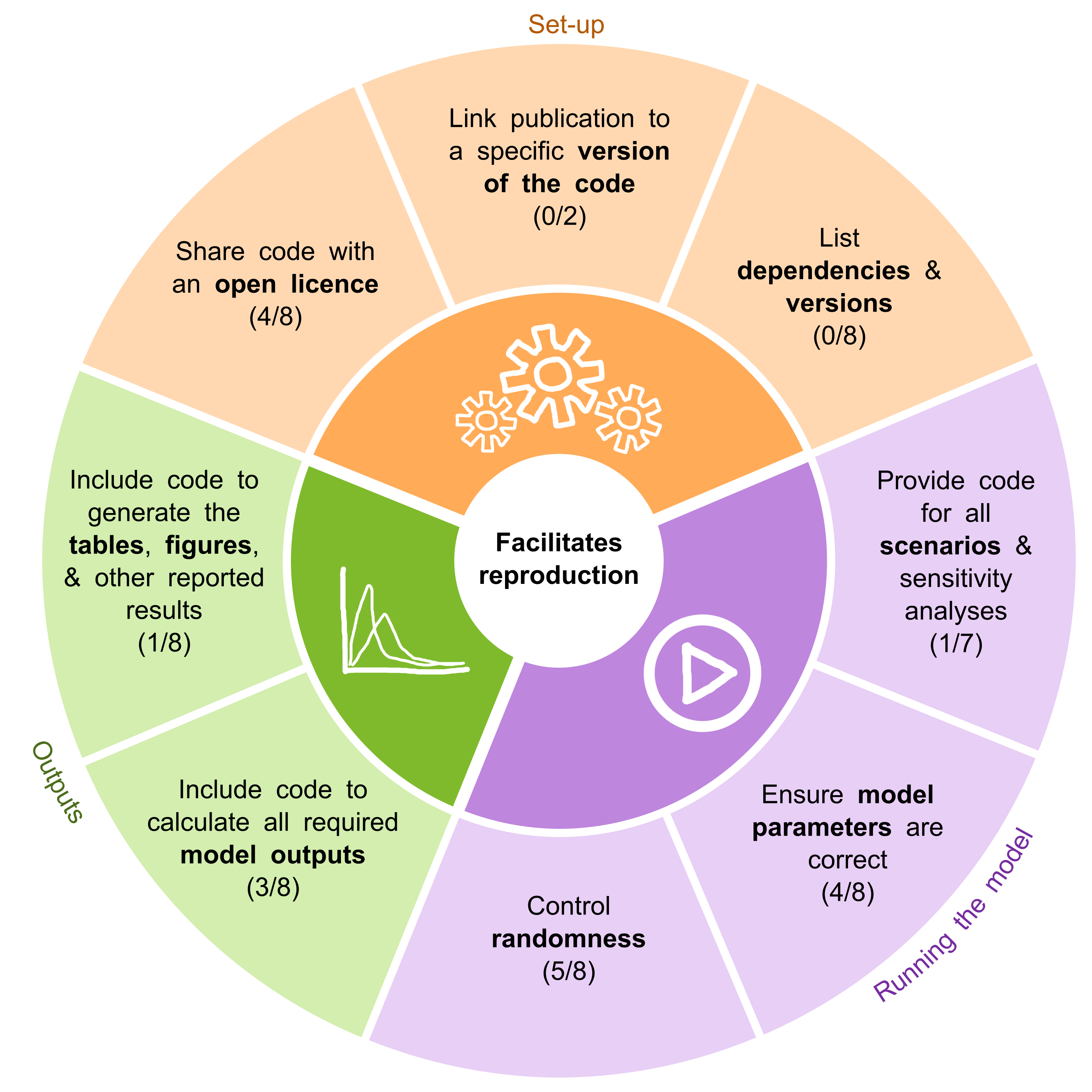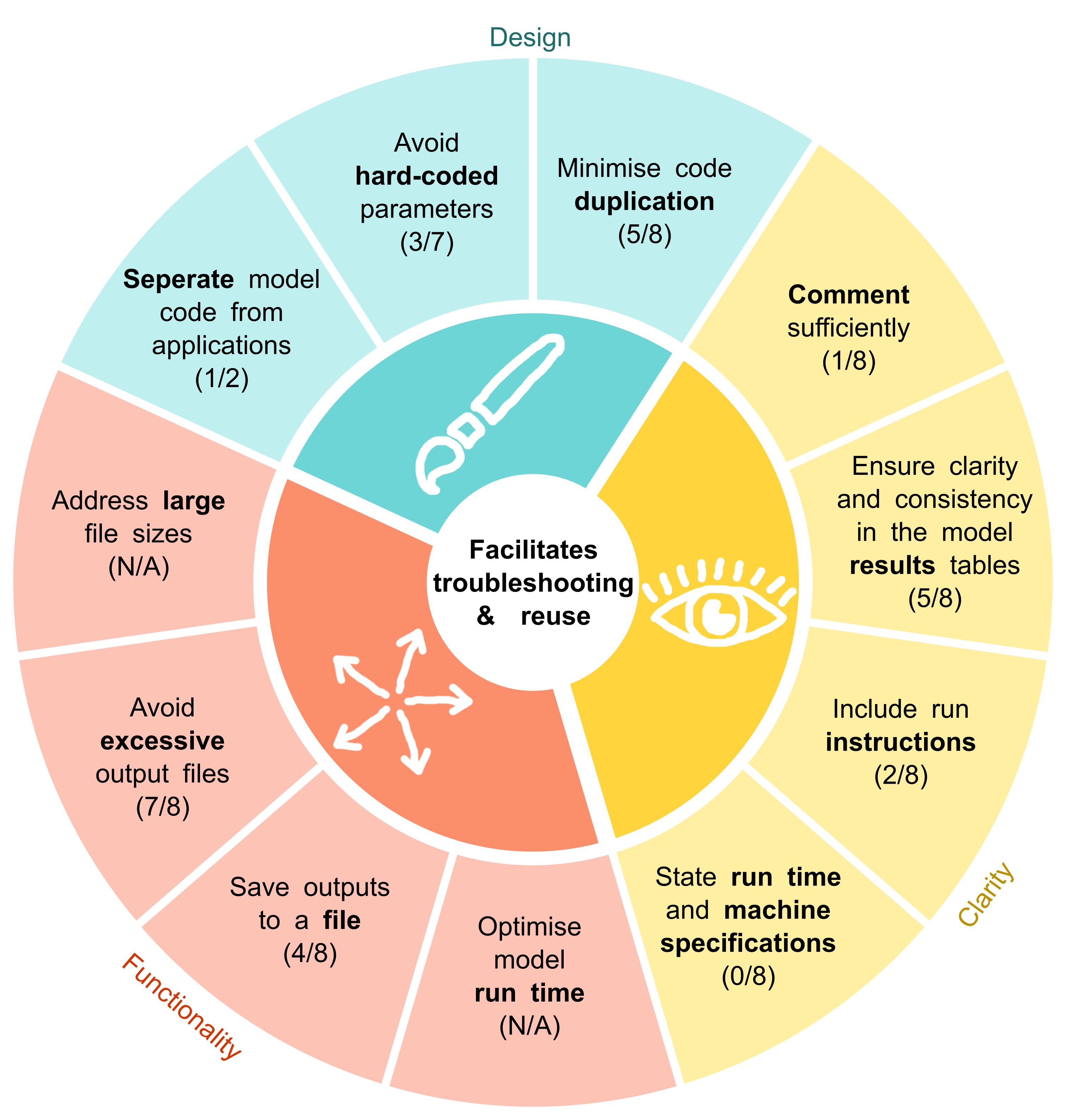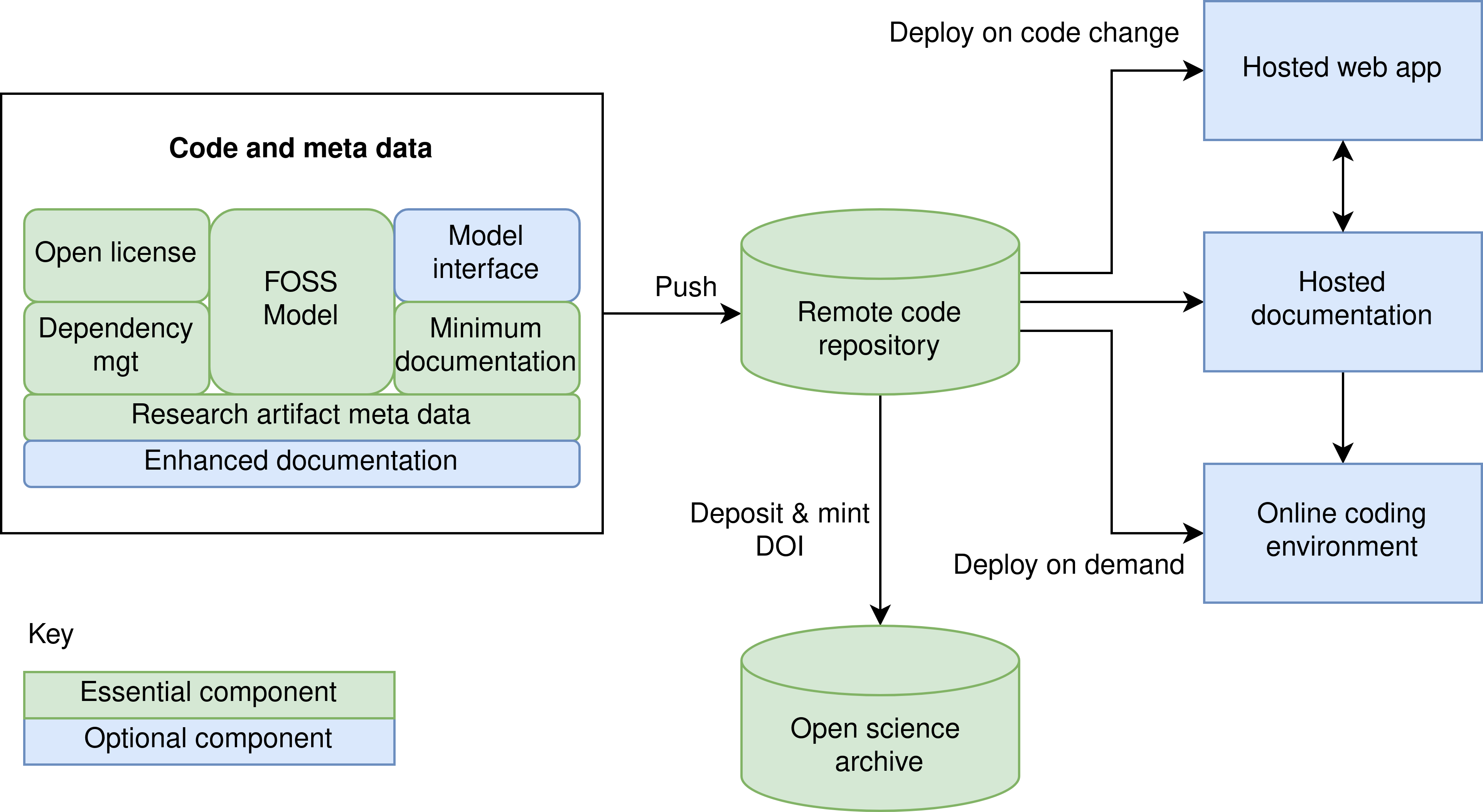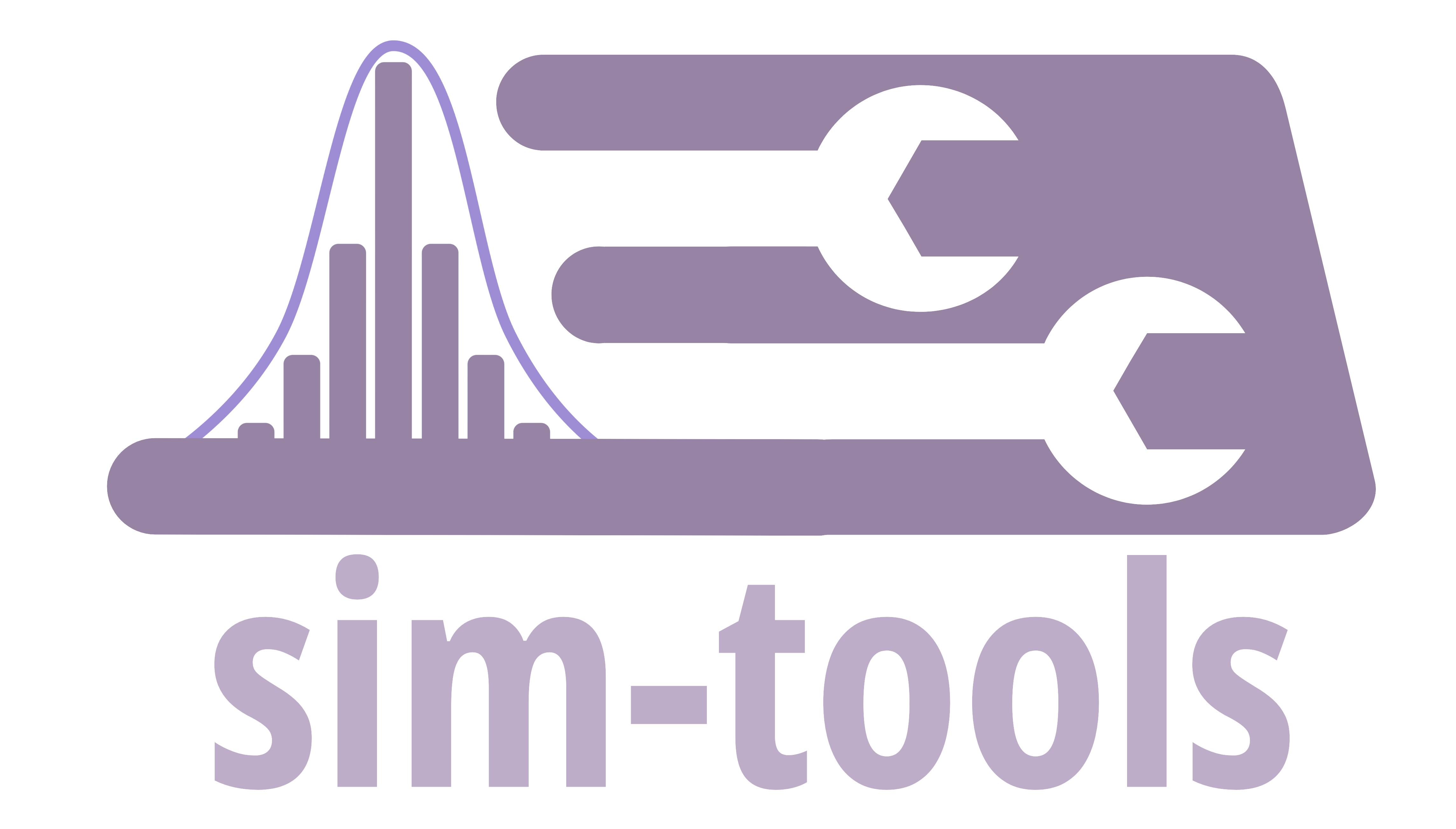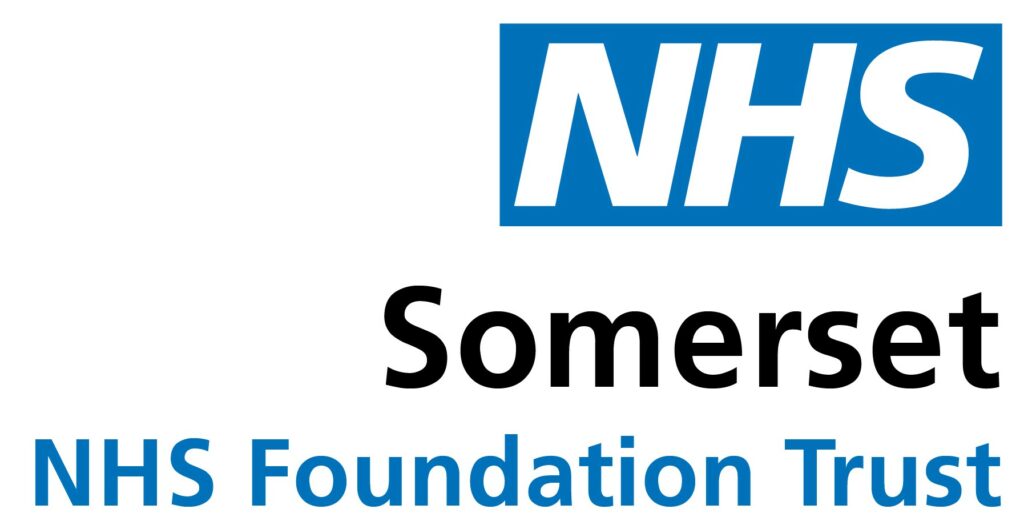STARS
Learning objectives:
- Understand the main aims and activities of the STARS project.
- Learn about sim-tools, a Python package supporting simulations.
- Identify project team members, affiliations, and sources of project support.
STARS
This website is a research output from the project STARS: Sharing Tools and Artefacts for Reproducible Simulations in healthcare.
The project tackles the challenges of sharing, reusing, and reproducing discrete event simulation (DES) models in healthcare. Our goal is to create open resources using the two most popular open-source languages for DES: Python and R.
We have been developing tutorials, code examples, and tools to help researchers and practitioners develop, validate, and share DES models more effectively.
The work has been centred around three important qualities for shared models - that they can be reproducible, reusable and replicable.
Definitions (based on Benureau and Rougier 2018):
Reproducible
We attempted to reproduce the outputs from eight Python and R DES models. From this experience, we developed a set of recommendations to support both model reproduction and effective troubleshooting when reproducing published simulation studies. This work is described in:
Heather, A., Monks, T., Harper, A., Mustafee, N., & Mayne, A. (2025). On the reproducibility of discrete-event simulation studies in health research: an empirical study using open models. Journal of Simulation. https://doi.org/10.1080/17477778.2025.2552177.
Each reproduction is available as an individual website, and they are all summarised in:
Heather, A., Monks, T., & Harper, A. (2025). Computational Reproducibility Assessments: Summary. https://github.com/pythonhealthdatascience/stars_wp1_summary.
Building on this work, we created this website and book to demonstrate practical approaches for making DES models reproducible in Python (SimPy) and R (simmer). All examples follow our reproducibility recommendations and are organised as reproducible analytical pipelines. Complete implementations of an M/M/s queueing model and an applied stroke simulation model are also provided.
Heather, A., Monks, T., Mustafee, N., & Harper, A. (2025). DES RAP Book: Reproducible Discrete-Event Simulation in Python and R. https://github.com/pythonhealthdatascience/des_rap_book.
We also had a tutorial at the Operational Research Society Simulation Workshop 2025 providing a basic introduction to building SimPy models:
Monks, T., Harper, A., Heather, A., Mayne, A., & Mustafee, N. (2025). Building healthcare discrete-event simulation models in free and open source software: an introductory tutorial. Proceedings of the Operational Research Society Simulation Workshop 2025 (SW25). https://doi.org/10.36819/SW25.004.
Reusable
We conducted a systematic review of sharing practices for healthcare DES models (any language or software). This review identified common barriers to model reuse, and identified a need for better frameworks and tools to support reusable simulation models.
Monks, T., & Harper, A. (2023). Computer model and code sharing practices in healthcare discrete-event simulation: a systematic scoping review. Journal of Simulation, 19(1), 108–123. https://doi.org/10.1080/17477778.2023.2260772.
Following this review, we developed the STARS framework, which provides essential and optional guidance to help make shared models more reusable. Details and three Python examples are in:
Monks, T., Harper, A., & Mustafee, N. (2024). Towards sharing tools and artefacts for reusable simulations in healthcare. Journal of Simulation, 1–20. https://doi.org/10.1080/17477778.2024.2347882.
We have also applied the STARS framework to an oncology cost-effectiveness model developed by PenTAG and collaborates for the NICE Pathways Pilot appraisal.
Lee, D., Muthukumar, M., Lovell, A., Farmer, C., Burns, D., Matthews, J., Coelho, H., O’Toole, B., Trigg, L., Snowsill, T., Barnish, M., Nikoglou, T., Brand, A., Ahmad, Z., Abdelsabour, A., Robinson, S., Heather, A., Wilson, E., & Melendez-Torres, G. J. (2024). Exeter Oncology Model: RCC edition. https://github.com/pythonhealthdatascience/stars-eom-rcc. https://doi.org/10.5281/zenodo.13969124.
Replicable
Whilst previously working at the University of Southampton, Tom was involved in developing the Strengthening The Reporting of Empirical Simulation Studies (STRESS) guidelines. They are a 20-item checklist (with guidelines for discrete-event simulation, agent-based simulation, and system dynamics) which outline the details authors should include about their model in their reports/publications.
Monks, T., Currie, C. S. M., Onggo, B. S., Robinson, S., Kunc, M., & Taylor, S. J. E. (2018). Strengthening the reporting of empirical simulation studies: Introducing the STRESS guidelines. Journal of Simulation, 13(1), 55–67. https://doi.org/10.1080/17477778.2018.1442155.
A review and update of the STRESS guidelines is currently underway.
sim-tools
Associated with STARS is sim-tools, a python package we have been developing to support discrete-event simulation and Monte-Carlo simulation.
Monks, T., Heather, A., Harper, A. (2025). sim-tools: fundamental tools to support the simulation process in python. https://doi.org/10.5281/zenodo.4553641.
Features include distributions with independent random number streams (used on the Randomness page) and functions for determining an appropriate number of replications (as on Number of replications page).
Project team and support
The project team is affiliated with the University of Exeter Medical School, University of Exeter Business School, and the Somerset NHS Foundation Trust.
The STARS project is supported by the Medical Research Council [grant number MR/Z503915/1].
Project team members:


